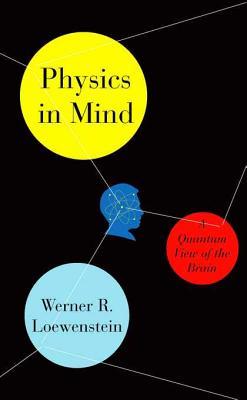
Physics in Mind
A Quantum View of the Brain
کتاب های مرتبط
- اطلاعات
- نقد و بررسی
- دیدگاه کاربران
نقد و بررسی

October 15, 2012
Loewenstein (The Touchstone of Life), emeritus professor of biophysics at Columbia University, describes his premise clearly and concisely: “consciousness has a physics explanation.” Unfortunately, his elucidation of this point gets lost in arcane details, complex writing, and metaphors run amok. The book’s first half explores the limits of information transfer in biological systems, while the second half discusses computational processes at the traditional and quantum levels. The link between brain function and evolution is, at best, opaque, and the author’s incessant use of the term “demons” to refer to catalyzing macromolecules (in honor of the nomenclature proffered by James Maxwell in 1871 to describe hypothetical beings who were able to create “order from chaos”) makes it hard to take him seriously. Credibility is further strained by the regular anthropomorphization of evolution; indeed, Loewenstein refers to the process as a female with very specific desires. Writing about the Pacinian corpuscle, a sense organ, he writes: “So we can see it now—that tuning gives away Evolution’s game. It was... biologically meaningful mechanical information... that she was after when she engineered that stupendous little capsule.” Loewenstein’s attempt to blend serious data with the accessible tropes of pop science is an unwieldy mess. 65 b&w illus. Agent: Jim Levine, Levine Greenberg.

Starred review from December 1, 2012
Was Leibniz wrong? The German philosopher once declared that science would never explain the human mind. His assertion hangs in the balance when Loewenstein illuminates the enigma of thought. Defying the usual disciplinary boundaries, Loewenstein deploys a Darwinian physics (replacing the daunting mathematics with clear bioneurological narrative, laced with sprightly humor) to explain how the cosmic volley of information arrows loosed by the Big Bang set the course for evolution. Readers will marvel at the electrochemical cunning of the chlorophylls and carotenes, cellular proteins and ion-selective membranes, that convert quantum signals carried by photons and electrons into life codes governing all multicellular organisms, all while satisfying the inflexible demands of thermodynamics. Astonishment swells again as readers contemplate the time structure of macromolecules, shaping the brain's neuron trellis into a parallel quantum biocomputer. That biocomputer has given one peculiar species a mind's-eye capacity for surveying the world as a whole and for anticipating future events in that world. It may disappoint some readers that, having come so far in explaining mental functions, Loewenstein finally balks before the mystery of mysteries consciousness itself. Somewhere the shade of Leibniz breathes a sigh of relief. But Loewenstein will be back. And readers will be eager to join him.(Reprinted with permission of Booklist, copyright 2012, American Library Association.)

























دیدگاه کاربران